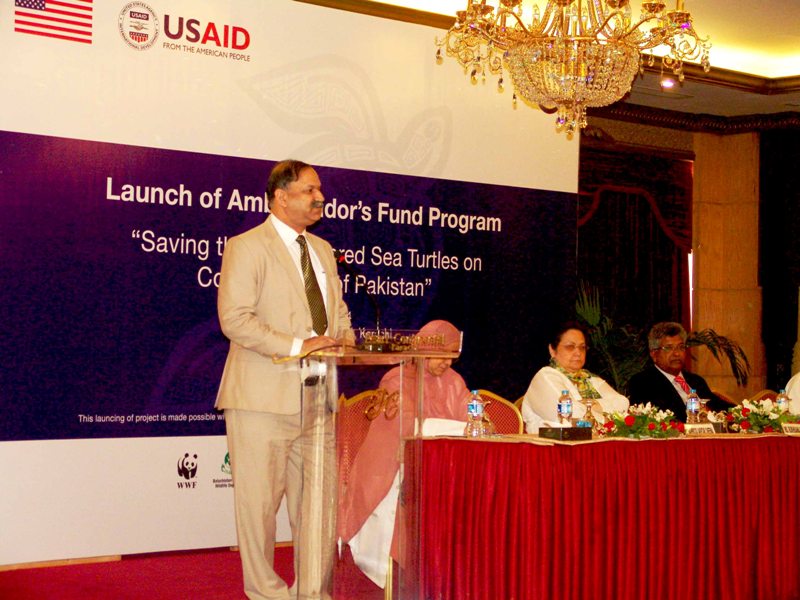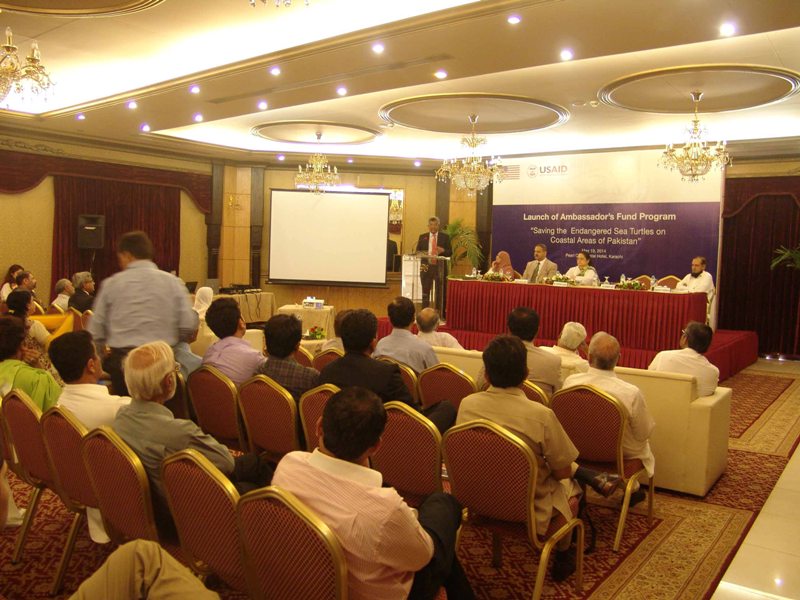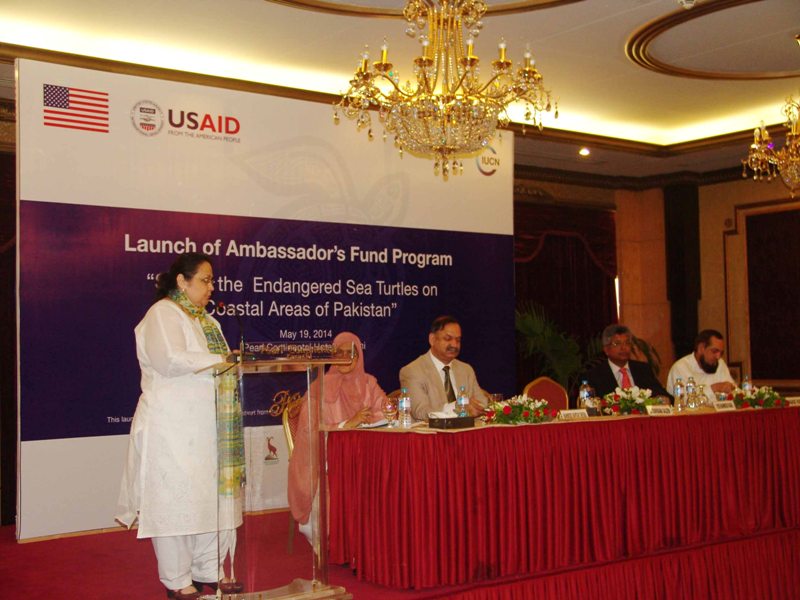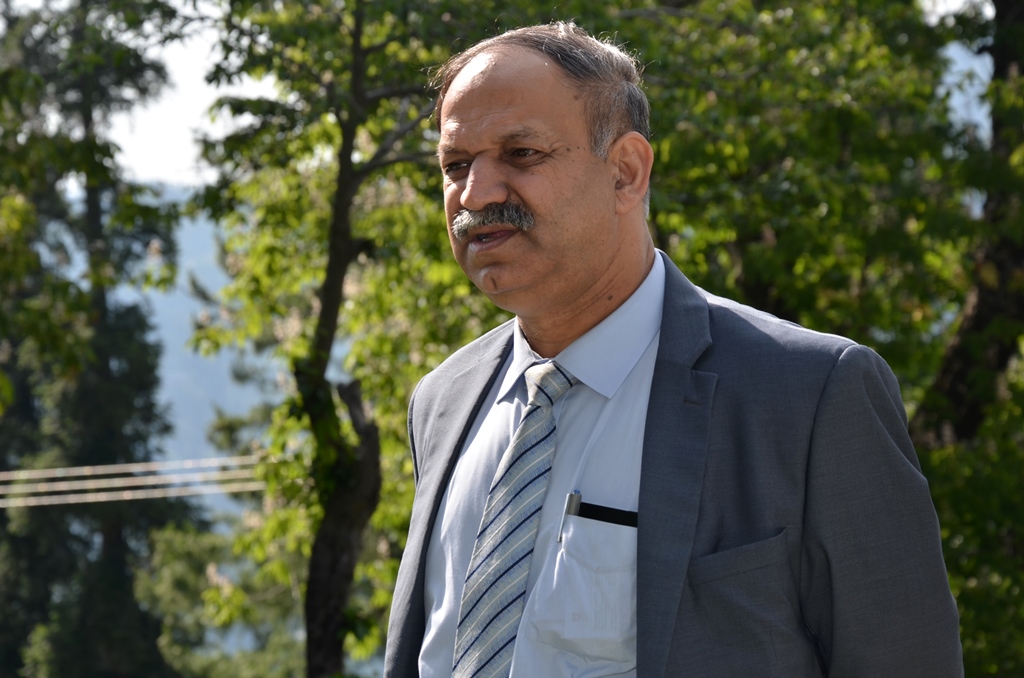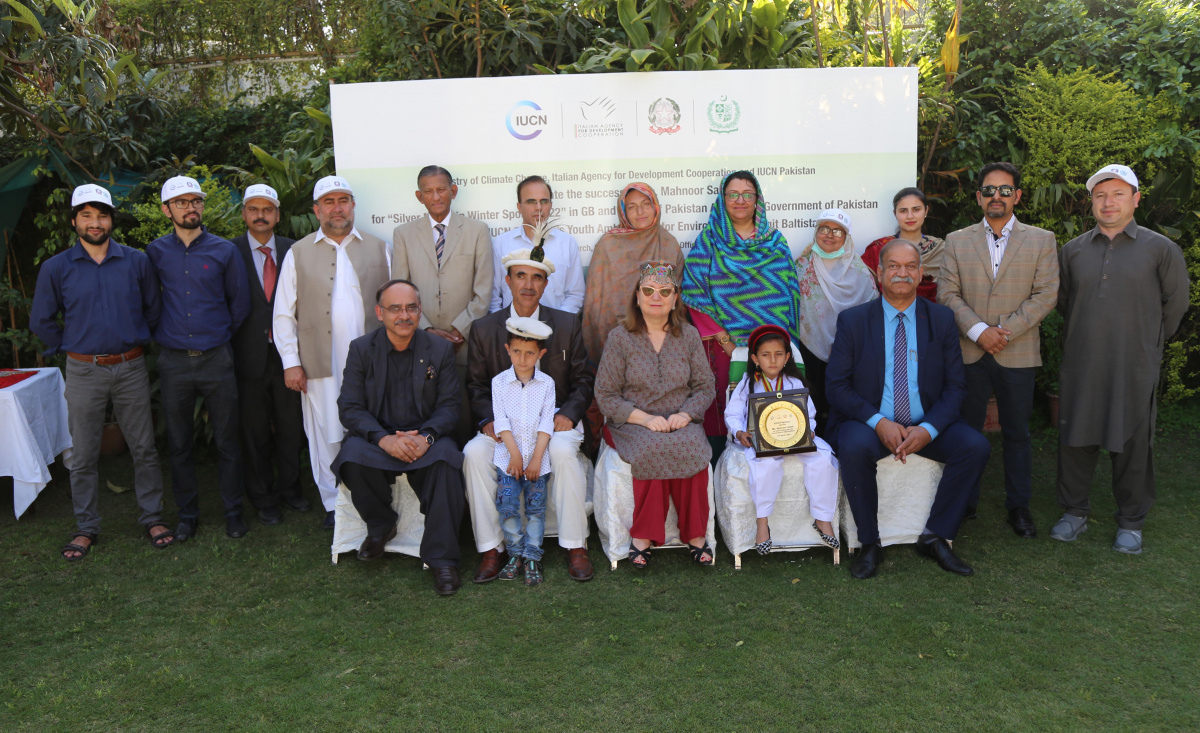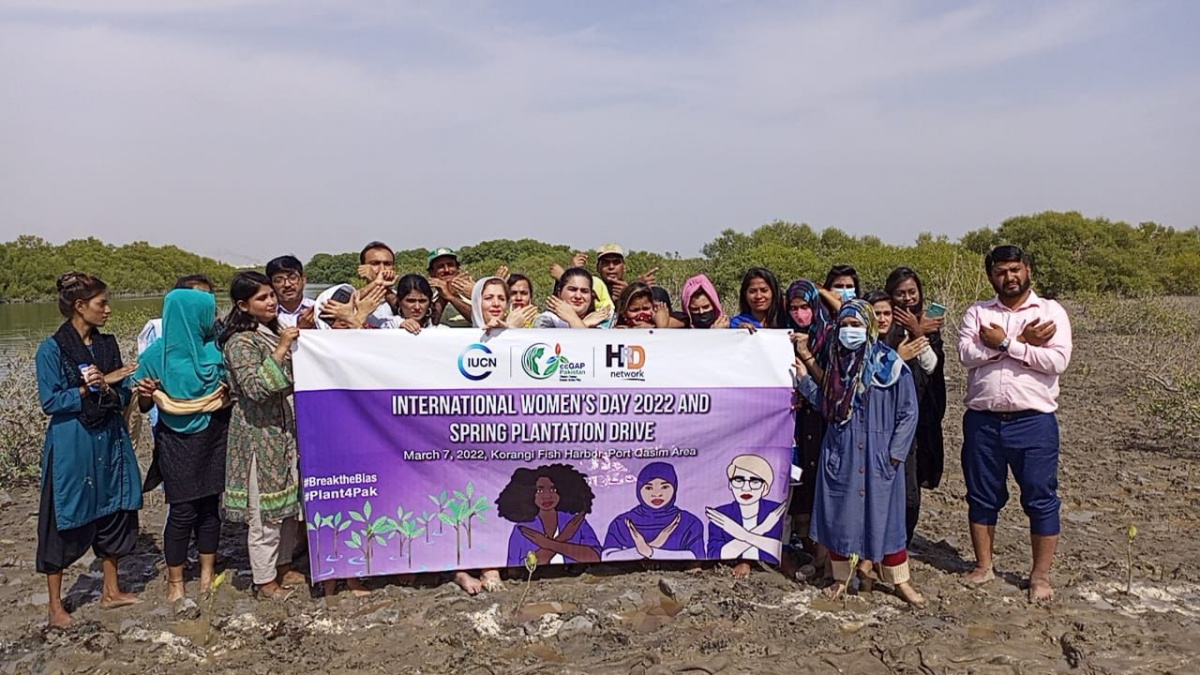Press release | 19 May, 2014
IUCN launches USAID-funded marine turtle conservation project
Efforts to protect the endangered sea turtles along the coasts of Sindh and Balochistan received a boost with the launch of a ‘Saving the Endangered Sea Turtles’ project at a ceremony in Karachi on May 19, 2014. The launching ceremony was attended by a large number of participants representing government, civil society, private sector and academic organizations.
The project, funded by USAID under its Small Grants and Ambassador’s Fund Programme will be implemented by IUCN, the International Union for Conservation of Nature, which has in the past been engaged in the conservation of sea turtles.
The project will be implemented at the turtle nesting sites in the coastal areas of Sindh and Balochistan. The project will be carried out in partnership with the Climate Change Division, Marine Fisheries Department, Wildlife & Forest Department, Government of Sindh; Wildlife and Forest Department, Government of Balochistan; Worldwide Fund for Nature, Pakistan; and the Mangroves for the Future Programme.
In his welcome address, IUCN Pakistan Country Representative Mr. Mahmood Akhtar Cheema said that “This is not our first attempt to conserve these endangered species. IUCN has actively been engaged in the conservation, awareness-raising and monitoring of sea turtles and other marine species such as dolphins, whales, migratory birds along Sindh and Balochistan coasts. The sea turtle conservation was one of the first conservation initiatives of IUCN in Pakistan. On a number of occasions, IUCN and its member organizations have jointly carried out rescue missions of stranded marine animals, including the sea turtles.
In 2010 IUCN developed a Strategic Plan to conserve sea turtles which broadly aims at reducing direct and indirect causes of marine turtle mortality, and protecting, conserving and rehabilitating marine turtle habitats.
Under the project, various conservation activities have been planned including assessing mortality of sea turtles in fishing operations, enhancing use of a Turtle Excluder Device (TED) in fishing nets, awareness and capacity of fisherfolks and promoting regional collaboration in turtle conservation. I hope that this project will be up-scaled and replicated in other locations of the country as well – but awareness raising is the first step, so that fishermen realize why it is important to protect the turtles, and how TED can serve as a valuable tool.
The chief guest on the occasion, Ms. Rukhsana Saleem, Secretary, Climate Change Division, Government of Pakistan, assured her full support to the cause. She expressed keen interest in eco-tourism development and stressed up on both the funding and the implementing agencies to come up with more substantial projects for conserving biodiversity and promoting eco-tourism in the country.
Syed Mahmood Nasir, Inspector General Forests, Climate Change Division, Islamabad gave a detailed account of global conventions and treaties that stress on conservation of marine life including Convention for Biological Diversity, Convention of Conservation of Migration Species of Wild Animals (CMS), UN Convention of Laws of the Sea. He emphasized on a coordinated approach to conserve the threatened marine species, including sea turtles, to address the threats facing them.
Mr. Ghulam Qadir Shah, MFF National Coordinator in his presentation indicated low survival rate, mortality in fishing operation, coastal pollution and habitat degradation as some of the key threats facing the marine turtles. He said that according to estimates, one out of one thousand baby turtles reach their maturity. He added that of the seven turtle species present globally, four have been reported from the coastal areas of Pakistan – and six are found in the Indian Ocean all of which have been listed on the IUCN Red List of Threatened Species as either endangered or critically endangered or vulnerable.
The IUCN Red List is the world’s most comprehensive information source on the global conservation status of animal, fungi and plant species and their links to livelihoods.
Dr. Fehmida Firdous, Deputy Conservator of Sindh Wildlife Department informed of various conservation measures taken by the Sindh Wildlife Department including tagging of around 8,000 turtles and establishment of a turtle hatchery at Sandspit. She lamented at the lack of integrated data on mortality of turtles in fishing nets, population structure and nesting of marine turtle, and the effects of marine pollution on them.
Mr. Sharifuddin, Deputy Conservator of Balochistan Wildlife Department mentioned that sea turtles were protected under the Balochistan Wildlife legislation and there were several turtle nesting sites along the Balochistan coast. He maintained that mortality in fishing nets has been observed as one of the key threats to be addressed.
Director General Marine Fisheries Mr. Shaukat Hussain stressed on research, awareness raising and capacity building of fisher folks in turtle protection and rescue and use of Turtle Excluding Device. He assured full cooperation and support of the Marine Fisheries Department in the implementation of the project.
Following the workshop, an inception meeting of relevant project stakeholders was held in IUCN Pakistan office Karachi in which a Project Steering Committee was constituted under the chairmanship of Syed Mahmood Nasir, Inspector General of Forests and matters pertaining to project implementation were discussed.
For more information, please contact:
George Sadiq
Programme Officer
Education Communication and Outreach
Cell: 0301-2931184
E-mail: george.sadiq@iucn.org
